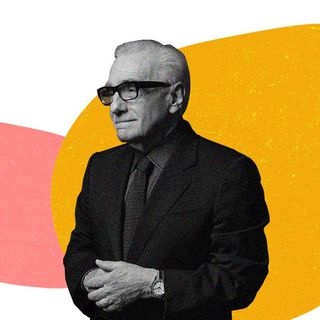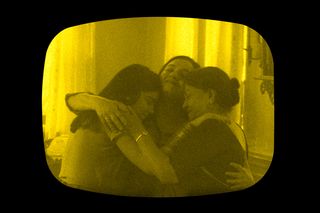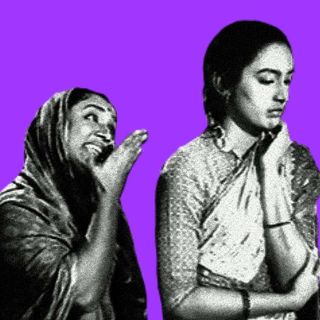
Ms. Marvel’s Story Avoids Hero‑Worship, Humanizes Her Through the Lens of Community
The show was never about saving the world; it was always about “being there” for one’s very human, very vulnerable community.

This article contains spoilers for Season 1 of Ms. Marvel.
Ms. Marvel‘s season finale was fittingly named “No Normal.” It did indeed diverge from the normalcy of worshipping superheroes with a kind of reverence otherwise reserved for gods — a trope that shows like The Boys and The Umbrella Academy have begun challenging. Ms. Marvel goes one step further; it humanizes the superhero. Again, not a first; but rather novel indeed in its approach to humanize its titular character — Kamala Khan, played by Iman Vellani — without relying on personal trauma as a plot device.
Instead, keeping the spirit of community alive, the writers layer Kamala’s character with generational trauma from the Partition of India in 1947 — one that allows three generations of women to open up to each other despite their differences in worldviews and opinions.
Throughout the season, Ms. Marvel has reflected a very strong sense of community — one that’s united by a strong cultural thread. The communal bond is, perhaps, a necessity for its members, who have chosen to call a country that’s always on the verge of persecuting them, “home.” With the titular character’s surname being Khan, Shah Rukh Khan’s dialogue, “My name is Khan, and I’m not a terrorist” — a movie about the hostility Muslims from South Asia face in the U.S. — comes to mind. The show’s characters, too, are subtly-but-perpetually aware of the dangers of simply belonging to the community they do in their new homes, away from their ancestors’ homelands.
As The Indian Express noted, “Ms. Marvel‘s cultural specificity has been cited by many as the reason behind its relative lack of popularity as compared to the other Disney+ shows set in the Marvel Cinematic Universe.” But, perhaps, therein lies the show’s truth, appeal, and even noor — which, in Ms. Marvel’s universe, refers to one’s powerful inner light. And in the scheme of the show, nothing represented it better than the scene of India’s Partition in its penultimate episode.
Related on The Swaddle:
‘Minnal Murali’ Subverts the Superhero Genre Through the Supersuit
The pain of leaving one’s hearth and home behind while heading — apprehensively, but determinedly — to an uncertain future, is something my grandmother carried with her all her life on the opposite side of the border, like countless other Indians, Pakistanis, and Bangladeshis did in their post-migration homes. The bitterness,anger, and reluctant acceptance that she, perhaps, bore in her heart reflected in Kamala’s naani‘s words too: “My passport is Pakistani, and my roots are Indian… In between, is a border, built with blood and pain. People are claiming their identity based on an idea some old Englishmen had.” Unfortunately, though, the Partition’s narrative isn’t often treated with the empathy it deserves in mainstream media and pop culture; besides Ms. Marvel, the only recent project that comes to mind as a powerful portrayal of that traumatizing moment in history is 2015’s Rajkahini.
It’s the show’s cultural specificity, in fact, that also goes on to ensure that its South Asian representation isn’t merely brown-baiting disguised as representation. Especially so, since the it is absence of such specificity that reflects how much the makers of shows like Bridgerton truly care about South Asian representation.
Among audiences who haven’t read the comic books, viewers from the subcontinent who understand Urdu always knew something Kamala didn’t, while she was struggling to come up with a superhero name for herself — her name, meaning “marvelous,” reflected that of Carol Danvers’, her favorite superhero. So, it was pretty clear to us why she went on to choose the name “Ms. Marvel” for herself. This served as yet another instance where the story inspired a sense of community among its subcontinental audience in an almost ironic way — by making them feel exclusively privy, by virtue of their communal identity, to a rather consequential bit of trivia.
This was akin to the impact the show created when its lead characters discussed Shah Rukh Khan’s Baazigar, and when Pasoori — a song The New Yorker believes to be “an apt metaphor for the relationship between two countries [India and Pakistan] in perpetual conflict” — played in the background as Kamala arrived at her naani‘s house in Karachi. It was as if MCU’s brown fans had suddenly found representation — not just through Farhan Akhtar’s and Fawad Khan’s brief but momentous appearances — but also through our knowledge of cultural symbols that would be lost to the show’s Western audiences. By highlighting Kamala’s roots — be it through her mother tongue, the clothes she wears, and the stories her parents discuss at the dinner table — the show kindles a latent sense of community that binds her with audiences from the subcontinent.
Further, one of Ms. Marvel‘s dominant themes has been that of Kamala — among other characters — coming to terms with her identity. “I think what’s really incredible about this show is that we’ve been talking a lot about identity… I feel like this show is really about a reclamation of your identity,” says Meera Menon, who directed some of the episodes this season. Her self-identity — right from her powers to the superhero name she finally chooses for herself — are rooted in the history of her family’s communal struggles and the language of that community.
Related on The Swaddle:
Why We Need to Re‑Examine ‘Brownness’ as an Identity Marker
However, nothing pays tribute to the concept of community more than the show’s finale. In one scene, Nakia (played by Yasmeen Fletcher) and Zoe (played by Laurel Marsden) join forces against white personnel at the U.S. Department of Damage Control in an unlikely allyship. In the next sequence, Zoe appeals to her community of followers on social media to show up for them — and, of course, keeping the spirit of community alive, they do. And as the team’s showdown with the authorities near a conclusion, the citizens of New Jersey step in to shield Kamala from their attack. And just like that, in one fell sweep, the show highlights how communities can be empowering — even for literal superheroes.
A family, too, is a community, and Kamala’s family acted as one. Although rather desi, they didn’t constantly cross boundaries under the pretext of love, and were not nearly as controlling — or guilt-inducing — as the kind in Kabhi Khushi Kabhie Gham and Baghban. Instead, the show offered a rather beautiful moment depicting a female superhero coming out to her desi parents about her superpowers — with no member throwing a tantrum as a response. Simultaneously, though, the show also manages to avoid appropriating — or even downplaying — the momentum reserved for coming out as queer, or even neurodivergent, by infusing levity into the scene through comedic nonchalance.
When we speak of communities outside of one’s biological family, though, our brains often conjure up images of a large group of people. The show subverts that, too, through a beautiful exchange between Kamala and Kamran, played by Rish Shah, that goes like this:
Kamran: “How can I be normal?“
Kamala: “There is no normal. There’s just us and what we do with what we have been given.”
A community isn’t just meant to celebrate festivals together; it is also a source of support and guidance. And in that moment, that is what Kamala provided Kamran — besides saving him from being captured by the authorities, she guided his self-acceptance, and validated his grief, without villifying him for the way he chose to express it. The show was never about saving the world; it was always about “being there” for one’s very human, very vulnerable community.
Devrupa Rakshit is an Associate Editor at The Swaddle. She is a lawyer by education, a poet by accident, a painter by shaukh, and autistic by birth. You can find her on Instagram @devruparakshit.
Related


Woe Is Me! “My Family Taunts Me for Being Unmarried. How Do I Make Them Stop?”
